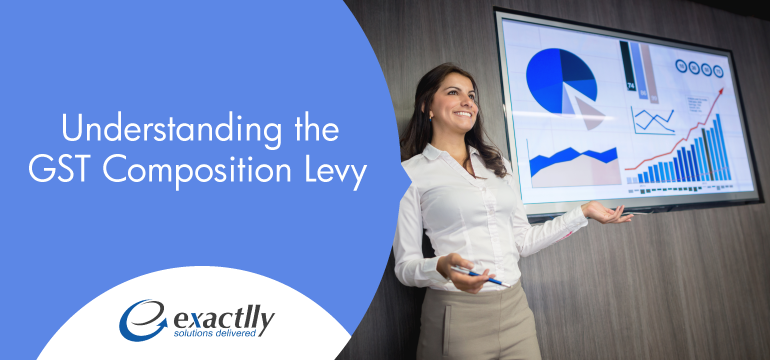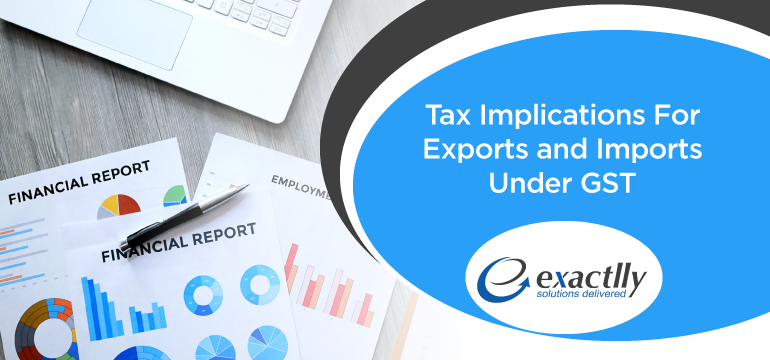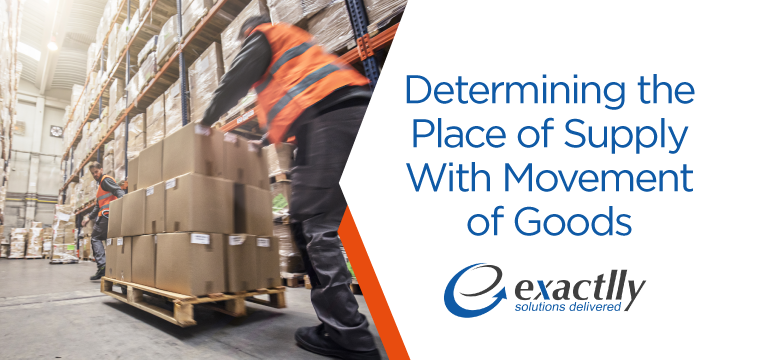Understanding the GST Composition Levy

Under the GST, the Composition scheme has been rolled out which provides a much easier and simpler method of compliance for small dealers. The GST Composition Levy Scheme is considered to be highly convenient for small dealers as they are equipped to pay taxes only at a certain percentage of the turnover, file quarterly returns periodically, not be stressed to maintain detailed invoice records or adhere to the rules thereunder, not be permitted to take input tax credit (ITC) nor to collect tax on sales.
All these factors make it easier for smaller businesses and dealers to calculate tax liability, thus saving time, effort and energy. The GST Composition Scheme differentiates between a Composite Dealer and a Regular Dealer. The difference between the two is as follows –
1. The Composite Dealer
- ITC not allowed, but added to the cost
- Not allowed to collect tax at sales (VAT)
- Not allowed to collect tax payable at turnover
2. The Regular Dealer –
- ITC allowed to be collected and not added to the cost
- Allowed to collect tax at sales or VAT and issue tax invoices
- Tax liability remains after utilizing the ITC
The GST Composition Scheme opted by the small dealers is also known as the Composition Levy, a concept where a composite tax payer is liable to pay tax – but only at a certain percentage of his turnover. There are several threshold limits on this concept levied across the country. They are as follows (considering they are levied on the same PAN) :
| Location | Aggregate turnover (INR) |
| North East India + Sikkim, Himachal Pradesh and Uttarakhand | Above 10 Lakhs during the previous financial year but does not exceed 50 Lakhs |
| Rest of the country | Above 20 Lakhs during the previous financial year but does not exceed 50 Lakhs (It is pertinent to note that the government is considering increasing the threshold limit of 50 lakhs to an amount not exceeding 1 crore) |
The Rate of Levy has been notified by the central government and is as follows –
| Whom it Affects | Rate |
| Manufacturer | 2% of the turnover in a state or union territory |
| Other than Manufacturer | Not less than 1% of the turnover in a state or union territory in a financial year |
| Trader | 1% |
| Supplier involved with the Food and Beverage Industry (supply of food or drinks for human consumption) | 5% of the turnover in a state or union territory |
There are several conditions that have been laid down as applicable to a composite tax payer aside from the threshold limit that he must comply with. The Composite Tax Payer–
1. Is not permitted to be engaged in the following services –
- Supply of services other than supply of food or drinks for human consumption, manufacture of specific notified goods.
- Interstate outward supply of goods/services.
2. Is not permitted to supply the following goods –
- Goods not taxable under the GST
- Goods being supplied through an e-commerce operator
3. Must make payment of composite tax for both supply of goods and supply of services if engaged in both activities, separately.
4. Need not collect tax on all his outward supply of goods and / or services.
5. Is not eligible to claim ITC on inward supply of goods / services even if he makes taxable purchases from a regular taxable dealer.
6. In case he is engaged in a business that has several verticals (for example, supply of mobile phones and accessories, automobiles and automobile parts) then composition levy shall be applicable for all these verticals under the same PAN, whether operating interstate or intrastate.
7. Must file the following forms as and when applicable –
| Form | When to be Filed | Details and Particulars |
| GSTR-4A | On a quarterly basis | Inward supplies of goos and services |
| Form GSTR-4 | On the 18th of the succeeding month, on a quarterly basis | Outward supplies of goods and services |
| Form GSTR-9A | December 31st of the next fiscal year | Consolidated details of quarterly returns filed along with tax payment details. |
Therefore, it is important to note that invoice details are not required to be maintained or declared – a composite dealer need only declare details pertaining to aggregate turnover as specified above. On the basis of this information, he is required to make requisite filings.


